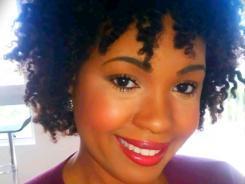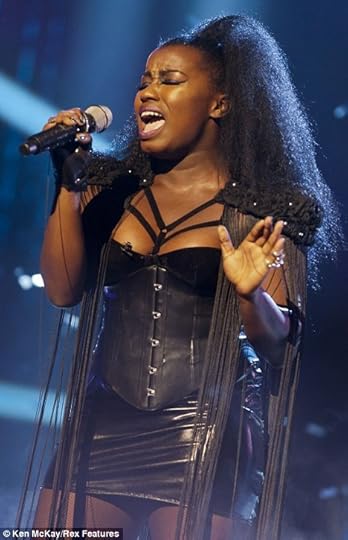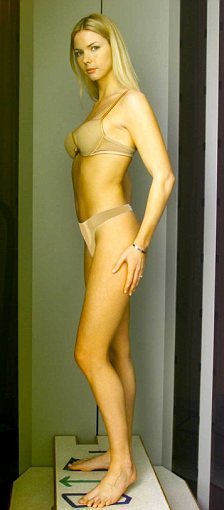Precious Williams's Blog
January 13, 2012
Boyd Tonkin: Put the hatchet in the other hand - Features - Books - The Independent
I have, I think, become a lot more selective about the targets of this nuclear option in the critical armoury. On the whole, I believe, the primary victims should always be influential, powerful, famous; those authors acclaimed by conformists and encircled by flatterers. The last time I consciously unsheathed the hatchet was in response to the matching piles of narcissistic trash recently dumped by Boris Johnson and Ken Livingstone. But rare exceptions arrive when a book, even by a total unknown, spreads not sweetness and light but poison and murk – when its effect may be seriously pernicious, in cultivating harmful lies or fomenting hatred.
Hence my mixed feelings about the new "Hatchet Job of the Year" award, run by The Omnivore website and designed to reward eloquent vituperation in the book-reviewing trade. (It turns out, by the way, that one of the judges is a certain Rachel Johnson.) Its prize will be a year's supply of potted shrimp. The shortlist does feature a piece of high-grade butchery from The Independent: Lachlan Mackinnon's disembowelling of Geoffrey Hill's latest volume, Clavics. I deeply admire Hill (though not for this book), but Oxford's much-garlanded, and now knighted, Professor of Poetry surely ranks as a legitimate target. Likewise, one may disagree with Geoff Dyer's haughty mockery of Julian Barnes's The Sense of an Ending (I do) or David Sexton's weary impatience with Carol Ann Duffy's The Bees (ditto), but these critics have - as critics should - trained their heaviest fire on the mighty of the literary world.
However, the Omnivore axe-merchants need to think straight about the purpose of their stunt. Another entry on their shortlist is Camilla Long's Sunday Times review of With the Kisses of his Mouth by Monique Roffey: an erotic memoir by the Trinidad-born novelist. Now, Roffey has appeared on the Orange Prize shortlist but in no sense counts as a big beast. Moreover, her book courted all the dangers of exposure and potential humiliation that such intimate memoirs will – our reviewer warmly applauded its bravery and integrity. Long, meanwhile, works as a star profile-writer for Rupert Murdoch's Sunday Times and recently won the "interviewer of the year" title at the British Press Awards. So when she set about Roffey's book in one of Murdoch's musclebound organs, this was a notable case of the powerful mugging the vulnerable.
An award celebrating vitriolic outbursts? Yuck!
December 22, 2011
'Natural hair' is making waves - USATODAY.com
Flip through magazines and TV channels this month, and you'll see coily, kinky and curly natural hair models in ads from Banana Republic to Gain detergent, from HomeGoods to Kmart.
Rochelle Ritchie, 29, a reporter for WPTV in West Palm Beach, Fla., made headlines last year when she went natural after years of straightening, braiding, extensions and wigs.EnlargeCloseRochelle Ritchie, 29, a reporter for WPTV in West Palm Beach, Fla., made headlines last year when she went natural after years of straightening, braiding, extensions and wigs.
"Natural hair has been a movement for several years. What we're seeing now is a confirmation that this is a lifestyle that is very important to a lot of women," says Cyntelia Abrams, marketing coordinator for Design Essentials, an Atlanta-based hair-care company that commissioned a 2010 study on the popularity of natural hair.
December 15, 2011
Here's yet another article about 'not being black enough' by Ben Douglas...
By Ben Douglas
Last updated at 2:02 AM on 14th December 2011
Comments (101) Share
Oh dear.
November 7, 2011
The Secret Lives of Baba Segi's Wives
I love books and I'm a promiscuous reader
 but every now and then I become completely besotted with a novel. One of my first obsessions, as a kid, was The Wizard of Oz and as an adolescent, I fell for everything by Alice Walker….
but every now and then I become completely besotted with a novel. One of my first obsessions, as a kid, was The Wizard of Oz and as an adolescent, I fell for everything by Alice Walker…. 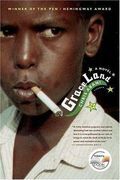 Later (late teens), it was all about the works of Chester Himes. And then Kureishi's Buddha of Suburbia. Shortly after that: Martin Amis's London Fields. More recently I fell in love with Chris Abani's Graceland and, around the same time, Emma Donoghue's Slammerkin. I've lost count of how many times I've re-read the aforementioned books and yet they remain ever-fresh. My current favourite novel is Nigerian author Lola Shoneyin's Orange Prize long-listed debut The Secret Lives of Baba Segi's Wives. Lola's language is gorgeous and her characters are vivid and they muscle their way into your memory, your heart, your nightmares. Like Chris Abani, she is a poet and she has so far written just the one novel. I hope she (and Abani) write more novels, and sooooon.
Later (late teens), it was all about the works of Chester Himes. And then Kureishi's Buddha of Suburbia. Shortly after that: Martin Amis's London Fields. More recently I fell in love with Chris Abani's Graceland and, around the same time, Emma Donoghue's Slammerkin. I've lost count of how many times I've re-read the aforementioned books and yet they remain ever-fresh. My current favourite novel is Nigerian author Lola Shoneyin's Orange Prize long-listed debut The Secret Lives of Baba Segi's Wives. Lola's language is gorgeous and her characters are vivid and they muscle their way into your memory, your heart, your nightmares. Like Chris Abani, she is a poet and she has so far written just the one novel. I hope she (and Abani) write more novels, and sooooon.
Stand-out line from the book:
"Baba Segi held his penis as if it was a hefty bill he had not expected to pay"

October 18, 2011
3D Bodymetrics bodyscanner: Find the perfect pair of jeans without trying them on | Mail Online
Shoppers will strip to their underwear and step into the scanner, which is shaped like a photo booth.
Low-power, infra-red lights will read more than 300,000 points all over the body. The whole process will take no more than 7 seconds.
One hundred vital statistics can be gathered - from bottom, waist and hip measurements down to the size of the left ankle, thigh girth and inside leg.
Really?
WHY I *AM* MY HAIR….
India Arie says 'I am not my hair….'
I disagree with her. I am my hair. Of course my hair (dreadlocks these days) is not all that I am. But it is all that I have chosen it to be. Hair's one of the few physical characteristics we have control over. 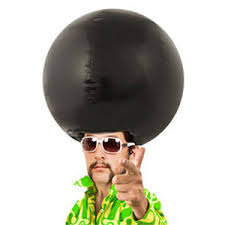 Everything we do to our hair is a choice. We can (fairly easily) change its texture (temporarily), style, length, feel …whereas it'd take plastic surgery to alter our facial features.
Everything we do to our hair is a choice. We can (fairly easily) change its texture (temporarily), style, length, feel …whereas it'd take plastic surgery to alter our facial features.
So what's the point of spending vast amounts of money, time and energy putting in a weave or relaxer only to say "it's only hair?" All of it is a choice. Personally I've sported weaves, relaxers, braided extensions, afros, twists, cornrows….And when I chose those styles I chose them because I liked the way it looked on me, at the time. Later, I fell in love with the natural texture of my hair and chose to reveal it. Whatever style we go for, why should we disown our hair and our hair choices – whatever those choices are – by saying I am not my hair? Our hair is surely as much a part of us as our brain, our eyes and our heart . I claim my hair 
Read on for an interview I did with the writer Memphis at Charcoal-Ink
Precious Williams UK writer and author of the book Precious (Color Blind U.S. version) shares with us how she became a writer and what inspired her to write her first book. Along with being a writer Precious rocks natural hair and shares with us her natural hair journey.
Precious when did you begin writing?
As soon as I'd learnt to read – aged around three and a half – I felt an urge to write my own stories. So I began writing as soon as I'd learnt how to use a pen or pencil.
How did you know that writing would become your niche?
It was the thing I'd always felt most excited about from as far back as I can remember.
As a young black woman living in the UK did you find it hard to get your work recognize as a writer?
I was first published at the age of eight – so the answer to your question is clearly 'no'. I'm not clear why being young-ish, black, female and living in England would make one assume I'd find it hard to get my writing 'recognized'. When it comes to getting work as a writer, in my experience the most essential factors are talent and tenacity, not having a specific shade of skin. I encourage aspiring writers to focus on their craft and not to assume that their ethnicity or gender is going to be some kind of handicap.
You've written a memoir called Precious (Color Blind US. version) about growing up in foster care with a white family, can you tell us why you chose to write about this?
Many writers' first novels are autobiographical. I decided to simply write a memoir instead – my childhood was complicated and colourful and it kept hijacking any novel I attempted to write. Having written my memoir I feel I have the space and freedom to create fiction. I'm finishing my novel right now.
What would you like people to gain or take from reading your story?
That you create your own path.
What are your thoughts about people such as Angelina Jolie, Sandra Bullock, Eva Longoria that adopt outside their race?
I've nothing against people adopting outside their own race. However I'm very concerned about this lingering idea that African children – and African people in general – need to be 'rescued' and 'civilized' by white Westerners. It's like a modern-day colonialism and it is extremely damaging.
You've written for big magazines such as Elle and Cosmopolitan just to name a few, what tips do you have for aspiring young writers wanting to get to that point?
Aim high. Imagine if you always assumed you'll succeed and that people are out to be kind to you rather than assuming you'll fail and that people want to discriminate against you. Harness that feeling and go for it.
What tips would you give to someone wanting to write their first book?
Write a book that you yourself would feel excited to read. If people try to tell you "it's almost impossible to get published these days" tune out and don't listen to them.
Now on to the natural hair …
How do you rock your hair? locs, afro, twist outs, etc …
I've had dreadlocks for nine years. They had grown to waist-length but I just had six inches cut off them this summer as I felt they looked just a tad too hippy-ish.
How long have you been natural?
All through the 90s I wore hair extensions and hair straighteners and bought into the idea that black women actually HAD to drastically alter their hair in order to be accepted and acceptable. Then one Saturday morning In 2000 I was taking out the latest set of straight hair extensions (a task that would take hours). The plan was to then put a hat on my real hair (never allowed my own natural hair to be seen in public), jump in a cab and get to the hair salon ASAP to get yet more straight extensions put in. But then I caught sight of my own hair in the mirror and fell in love with it. It was an absolutely huge lively-looking afro, sort of like the singer Maxwell's hair used to be before he cut it.
I hadn't observed my unadulterated hair properly in years. I'd taken to seeing my natural hair as a demon that needed to be corrected or covered up. That day I cancelled the hair salon appointment and decided to keep my own natural hair instead. It felt like one of the most daring decisions I'd made in absolutely years – honestly it felt as though I was doing something utterly forbidden. When I unveiled my hair to my family they were utterly horrified, all of them. Even the Nigerian sales clerk at my local supermarket had a go at me about my hair. It was mainly only white people and Rastafarians who were able to like or love my hair at that time. A white friend asked me why I always straightened my hair when my real hair was so 'pretty'. My mother told me to expect to be sacked from my job (as a reporter at a national newspaper) if I continued walking around with my natural hair. I was unmoved by the comments, good or bad. My afro grew and grew. So did my "self-confidence".
What made you want to go natural?
Well in no small part because I really LOVE the texture of natural afro hair. And in retrospect I realized that I'd found it deeply humiliating walking around with the hair of Asian women woven into my head to supposedly make me look more "acceptable." I feel rather ashamed of the fact that I was once willing to go to such ridiculous lengths (no pun intended). One of the lies I had come to believe back then was that black women had to wear fake, straight hair in order to be desirable to men. Of course that turned out to be complete crap. Most black men are very used to the presence of hair extensions but that doesn't necessarily mean they like them.
In fact there is a group on Facebook called Black Men Against Weaves. As for white men, I still recall the utter confusion on the face of a white man I'd been dating during my hair extension phase. He ran his fingers through what he thought was MY hair only to feel the tracks where the extensions were attached. Weeks later he nervously asked me why I insisted on wearing "those strange little wigs". I had no answer. The weekend when I finally took out the hair extensions for good I felt elated. For me personally the wearing of fake hair had become a sort of pathology.
What's your hair routine?
I pretty much just shampoo and go. I also use ayurvedic hair oil for moisture. But mainly I take care of hair health by eating right and taking Omega 3 oil etc.
What's your favorite hair product?
It's not very exciting but I guess my favourite product is my shampoo. It's an ayurvedic shampoo I get from a health food store in London.
What troubles you most about your hair?
I slightly fear going grey. I don't have any grey hairs yet and I can't imagine how I'd look with a mane of grey or white dreadlocks.
Who is your hair inspiration?
I really love the singer Goapele's hair. Her dreadlocks were just beautiful and I love her braided styles too.
What advice would you give to newly naturals?
Enjoy your hair!
To learn more about Precious and her book you can visit her website at www.preciouswilliams.com
"The wearing of fake hair had become a sort of pathology..."
Precious Williams UK writer and author of the book Precious (Color Blind U.S. version) shares with us how she became a writer and what inspired her to write her first book. Along with being a writer Precious rocks natural hair and shares with us her natural hair journey.

Precious when did you begin writing?
As soon as I'd learnt to read – aged around three and a half – I felt an urge to write my own stories. So I began writing as soon as I'd learnt how to use a pen or pencil.
How did you know that writing would become your niche?
It was the thing I'd always felt most excited about from as far back as I can remember.
As a young black woman living in the UK did you find it hard to get your work recognize as a writer?
I was first published at the age of eight – so the answer to your question is clearly 'no'. I'm not clear why being young-ish, black, female and living in England would make one assume I'd find it hard to get my writing 'recognized'. When it comes to getting work as a writer, in my experience the most essential factors are talent and tenacity, not having a specific shade of skin. I encourage aspiring writers to focus on their craft and not to assume that their ethnicity or gender is going to be some kind of handicap.
You've written a memoir called Precious (Color Blind US. version) about growing up in foster care with a white family, can you tell us why you chose to write about this?
Many writers' first novels are autobiographical. I decided to simply write a memoir instead – my childhood was complicated and colourful and it kept hijacking any novel I attempted to write. Having written my memoir I feel I have the space and freedom to create fiction. I'm finishing my novel right now.
What would you like people to gain or take from reading your story?
That you create your own path.
[image error]
What are your thoughts about people such as Angelina Jolie, Sandra Bullock, Eva Longoria that adopt outside their race?
I've nothing against people adopting outside their own race. However I'm very concerned about this lingering idea that African children – and African people in general – need to be 'rescued' and 'civilized' by white Westerners. It's like a modern-day colonialism and it is extremely damaging.
You've written for big magazines such as Elle and Cosmopolitan just to name a few, what tips do you have for aspiring young writers wanting to get to that point?
Aim high. Imagine if you always assumed you'll succeed and that people are out to be kind to you rather than assuming you'll fail and that people want to discriminate against you. Harness that feeling and go for it.
What tips would you give to someone wanting to write their first book?
Write a book that you yourself would feel excited to read. If people try to tell you "it's almost impossible to get published these days" tune out and don't listen to them.
Now on to the natural hair …
How do you rock your hair? locs, afro, twist outs, etc …
I've had dreadlocks for nine years. They had grown to waist-length but I just had six inches cut off them this summer as I felt they looked just a tad too hippy-ish.
How long have you been natural?
All through the 90s I wore hair extensions and hair straighteners and bought into the idea that black women actually HAD to drastically alter their hair in order to be accepted and acceptable. Then one Saturday morning In 2000 I was taking out the latest set of straight hair extensions (a task that would take hours). The plan was to then put a hat on my real hair (never allowed my own natural hair to be seen in public), jump in a cab and get to the hair salon ASAP to get yet more straight extensions put in. But then I caught sight of my own hair in the mirror and fell in love with it. It was an absolutely huge lively-looking afro, sort of like the singer Maxwell's hair used to be before he cut it.
I hadn't observed my unadulterated hair properly in years. I'd taken to seeing my natural hair as a demon that needed to be corrected or covered up. That day I cancelled the hair salon appointment and decided to keep my own natural hair instead. It felt like one of the most daring decisions I'd made in absolutely years – honestly it felt as though I was doing something utterly forbidden. When I unveiled my hair to my family they were utterly horrified, all of them. Even the Nigerian sales clerk at my local supermarket had a go at me about my hair. It was mainly only white people and Rastafarians who were able to like or love my hair at that time. A white friend asked me why I always straightened my hair when my real hair was so 'pretty'. My mother told me to expect to be sacked from my job (as a reporter at a national newspaper) if I continued walking around with my natural hair. I was unmoved by the comments, good or bad. My afro grew and grew. So did my "self-confidence".

What made you want to go natural?
Well in no small part because I really LOVE the texture of natural afro hair. And in retrospect I realized that I'd found it deeply humiliating walking around with the hair of Asian women woven into my head to supposedly make me look more "acceptable." I feel rather ashamed of the fact that I was once willing to go to such ridiculous lengths (no pun intended). One of the lies I had come to believe back then was that black women had to wear fake, straight hair in order to be desirable to men. Of course that turned out to be complete crap. Most black men are very used to the presence of hair extensions but that doesn't necessarily mean they like them.
In fact there is a group on Facebook called Black Men Against Weaves. As for white men, I still recall the utter confusion on the face of a white man I'd been dating during my hair extension phase. He ran his fingers through what he thought was MY hair only to feel the tracks where the extensions were attached. Weeks later he nervously asked me why I insisted on wearing "those strange little wigs". I had no answer. The weekend when I finally took out the hair extensions for good I felt elated. For me personally the wearing of fake hair had become a sort of pathology.
What's your hair routine?
I pretty much just shampoo and go. I also use ayurvedic hair oil for moisture. But mainly I take care of hair health by eating right and taking Omega 3 oil etc.
What's your favorite hair product?
It's not very exciting but I guess my favourite product is my shampoo. It's an ayurvedic shampoo I get from a health food store in London.
What troubles you most about your hair?
I slightly fear going grey. I don't have any grey hairs yet and I can't imagine how I'd look with a mane of grey or white dreadlocks.
Who is your hair inspiration?
I really love the singer Goapele's hair. Her dreadlocks were just beautiful and I love her braided styles too.
What advice would you give to newly naturals?
Enjoy your hair!
To learn more about Precious and her book you can visit her website at www.preciouswilliams.com
Alex Wheatle: "My name's not on the list & they won't let me in..."
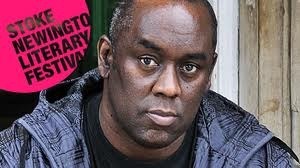 Novelist Alex Wheatle has written an article I consider to be really quite brave. And timely. It appeared in yesterday's Independent with the subhead: "Britain's premier book prize is presented tonight. It's a shame it continues to ignore talented black writers, argues author Alex Wheatle"
Novelist Alex Wheatle has written an article I consider to be really quite brave. And timely. It appeared in yesterday's Independent with the subhead: "Britain's premier book prize is presented tonight. It's a shame it continues to ignore talented black writers, argues author Alex Wheatle"
Alex says the Booker and other major literary prizes exclude (black) authors like him.
Many (the majority, even) of the Indy readers commenting on Alex's piece disagreed with him. One comment read "Unfortunately, this article reads as the spoilt sayings of a cry-baby author - black, urban, or otherwise."
Is Alex right?
Haven't Zadie Smith, Andrea Levy, Helen Oyeyemi, Aminatta Forna and Diana Evans all won major prizes? Didn't Ben Okri win the Booker back in 1991?
But Alex is talking here about black authors who specifically write about the lives of"the black underclass" - authors like Stephen Thompson and Courttia Newland. And Alex would like to know why the response seems to be so much more positive when a white author - such as Stephen Kelman - writes about that very same subject.
The last black author to win the Booker was Ben Okri, in 1991.
Black Booker Prize nominees include Esi Edyugan (Half Blood Blues) this year, Andrea Levy (The Long Song) last year and Zadie Smith (On Beauty) in 2005.
August 8, 2011
video platformvideo managementvideo solutionsvideo player
April 14, 2011
Interview
Vitabu Books Interview | Precious Wiliiams
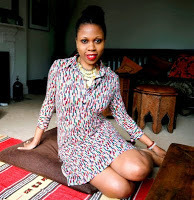
Precious Williams is a journalist and author of the memoir Precious, A True Story, published by Bloomsbury in August 2010. A German translation of the book, titled Farbenblind, was published in October 2010 and a US edition, titled Color Blind, is published by Bloomsbury USA. Precious's first book is about growing up in trans-racial 'private foster care'. Vitabu Books presents a candid conversation with the author.
Vitabu Books: In your brilliant interview with Belinda Otas, you said it took you about a year to write Precious, but several more years to do all the research. Exactly how long was the process? Can you walk us through the time period? When did you start thinking you wanted to write a book about your experiences? What made you want to do it? You mention documents and data you collated with a lawyer and having family members read the manuscript and give feedback? What was that like? Did it make a difference? How?
Precious Williams: It took me about a year to write 'Precious' (aka 'Color Blind') and another three years to complete all the research. The research included appearing before a Judge at the Family Court in London to plea for access to childhood court records. Fortunately the Judge agreed to release my records. The next step was accessing my Social Services files, incredibly it took Social Services more than two years to release my childhood files to me. When it came to the fact-checking process, I found that my memory had been surprisingly accurate, even of events that happened when I was very young indeed. The next step was to have family members read the manuscript and I found that nerve-wracking, although in the end it turns I needn't have worried – my family readers didn't ask me to change a word.
While my book is about my search for identity, it also details various forms of abuse I experienced as child. You absolutely cannot publish such assertions without
proof and so a lawyer worked through my manuscript very carefully, liaising with members of my family in order to corroborate events, dates and facts. The enormous
bundle of court and Social Services documents I had in my possession by this time proved immensely useful as it meant there were detailed notes recorded way back then by third parties which backed up my story.
Why did I choose to write about my own experiences?
My own story kept creeping into everything else I tried to write, so in the end I had to just let it flow. I do not think I had realized how stressful writing and promoting a memoir would be until it was too late! Putting my own life story out there was rather like appearing naked in public (something I had experienced as I used to work as a life model). But of course the memoir is not just about me - I was (and am) also responsible for protecting the feelings of my loved ones and family members, while at the same time trying to tell my story as clearly and fully as possible. With every line I wrote, and later, in every media interview I gave, I was desperately worrying about how various family members would feel about what I was writing or saying. In the end, to my absolute surprise and delight, the publication and discussion of the book brought me much closer to my family members, especially to my foster family. My foster-aunty has accompanied me to several book signing/reading events and she says she feels famous now that she is a character in a book!
Vitabu Books: One reader described your book as something that's `out of your hands' and 'touching many different people in many different ways. This January you reflected on your experiences in What kind of family matters? How have your views on private fostering/adoption changed since you started this global conversation on family?
Precious Williams: I grew up utterly immersed in 'private fostering', where the natural parent gives the child to strangers or acquaintances (or sometimes extended family) to be looked after on an informal basis. I was privately fostered and so was one of my half-siblings, so were several of my cousins. I thought private fostering was totally normal. When I visited Nigeria as a young child, I found that my maternal grandmother informally fostered children of family members. There seemed to be an "it takes a whole village" attitude to child-rearing. But to my white English peers the process was bizarre, dangerous, [and] barbaric. They didn't understand at all. It's an ongoing conversation….
Vitabu Books: If you could do it all over again what would you do differently? In the writing/publishing process?
Precious Williams: Wow. This is a hard question to answer. I'm really proud of my book and I'm thrilled with the way the entire process has had a healing effect on family relationships. But, it was so, so, so intense. I still feel drained not so much from the writing but from the emotional fall-out (even the good stuff). If I could do it again maybe I'd write my life story but disguise it as a novel! As for the writing/publishing process, it couldn't have been better. I was in the amazingly fortunate position of being able to "pick" my publisher. I had an initial offer on the book from one of my dream publishing houses. Then a second offer came through, then a third offer from another of my dream publishing houses. In the end I met up with editors at the two final bidders and one paperback editor said something like "Please choose us," and I thought that was so lovely and unpretentious that my mind was made up instantly. It was the best decision I could have made!
Vitabu Books: What tips do you have for budding writers with compelling life stories out there?
Precious Williams: In my opinion it's important not to censor yourself at all in your very first draft. And don't ever give up!
Vitabu Books: What are you working on now? What's next?
Precious Williams: I'm finishing my second book which is a novel. An historical novel. I'm utterly excited about it, so that's a good sign.


